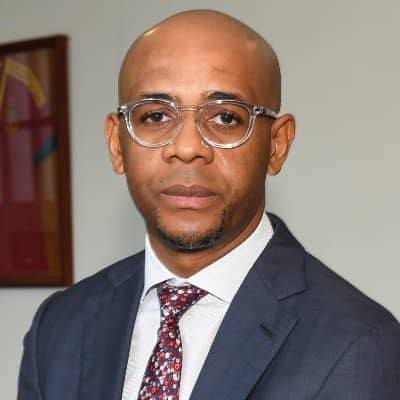
On a sunny afternoon in the month of March, my bike man and I were travelling to Chorin Boso, a high-burden rural community in Abuja, to visit a Primary Healthcare Centre (PHC) that serves villages in Chorin Boso. The road to the PHC is terrible and rough, and the trip is further compounded because the road was under construction, which made it difficult to travel upon. While traversing this rough road, this reporter suffered from back and body pains before reaching the primary healthcare centre.

Sandy road leading to Chorin Biso Primary Health Care Centre
On getting to the Chorin Biso PHC, no community extension worker was seen inside the PHC, and the facility was left open. Inside the PHC, there is infrastructure decay, the roof is leaking, and the facility lacks medical equipment.

Sandy road leading to Chorin Biso Primary Health Care Centre
The facility has only two wards and one consulting room. There are just three beds, but only two are working. And there is no pharmacy. When it rains, the roof leaks, and there is no pharmacy.

The facility has a borehole, but it is no longer functioning. It was gathered that workers in the facility now resort to buying water from water sellers. There is no electricity, no solar power, and if health workers want to perform their duties at night, they use torchlights and rechargeable fans. Whenever they receive complications, they usually refer patients to Waru or Karshi General Hospital, which takes up to one to two hours due to the terrible road. The facility lacks basic medical equipment such as bandages, gloves, oxygen, and the protective equipment they currently use are what was supplied during COVID-19.

The facility is in dire need of total renovation, electricity supply, solar or generator power to aid the staff in their work, and the borehole needs repair. The Abuja Municipal Area Council employed only one primary health worker at the PHC, while two other health workers are volunteers.

A newborn baby was coughing uncontrollably in the hands of Joy Danjuma, a resident of Chorin Boso who was trying to breastfeed her baby. When this reporter approached her, she complained bitterly that there were no drugs for the baby in the facility. In case of emergency, there is no ambulance to transport patients to the general hospital in Waru or Karshi, which takes one to two hours to reach on a terrible road using a motorcycle.

The dilapidated roof of Chorin Biso Primary Health Care
The absence of functional ambulances in PHCs is a serious issue that needs to be addressed by the government. Of the 10 PHCs this reporter visited, only the PHC located inside the barracks housing the 7 Guards Battalion had a functional ambulance and enough bed space and medical facilities to accommodate patients.

Chorin Biso Primary Health Care Centre
At Gishiri Primary Healthcare Centre, although the facility is about 10 minutes from the main road, the road to the facility is terrible and even worse during the rainy season. The healthcare centre is too small due to lack of space. During immunization, women usually fill the facility, which means there is no privacy, and some patients usually leave after feeling stranded and frustrated due to lack of space.

The muddy road leading to Gishiri Primary Health Care Centre
Despite the small size of the PHC, it conducts HIV and Hepatitis tests. The hospital has no ward, no consulting room, the delivery bed is damaged, and the waiting area is used as an office for the health workers in charge. There is no pharmacy in the facility, and no renovation has been done since it was constructed. The only renovation carried out was by Christ Embassy, the church the community health worker attends. The equipment used in the hospital was donated when the health worker in charge went for family planning training.

The small, cramped building of Gishiri Primary Health Care Centre
In Gbagalape PHC, Ladi Okewu, a resident of Gbagalape, lamented bitterly over the absence of health workers in the facility during critical times. He stated that there is a need for health workers to be present throughout the day and night in case of emergencies.

The small, cramped building of Gishiri Primary Health Care Centre
“We need active health workers in the facility. Even in the afternoon, if there is an emergency involving a pregnant woman about to give birth, they have to call the health workers before they come, even if it’s urgent. If the person is in critical condition, that is how the patient would die. If there are any complications, they usually refer patients to Nyanya General Hospital,” he said.
Expert weighs in
Lawal Jamiu, a Public Health Analyst, stated that the lack of ambulances and inadequate facilities in healthcare centres has serious health implications. These issues critically delay emergency referrals and cause pregnant women to experience complications and excruciating labour, he added.

Gbagalape Primary Healthcare building, entrance, and patient ward
He noted that these delays can be fatal and may lead to long-term disabilities. In the absence of an ambulance, which serves as an emergency transport system, it contributes significantly to the high burden of maternal mortality.
“Lack of ambulances and enough medical equipment affects patients with chronic conditions, especially elderly patients, and those with stroke, diabetes, and hypertension. They are seriously affected because a functional referral system requires timely evacuation, which is nearly impossible without ambulances, especially in hard-to-reach areas.
“Shortage of bed capacity is a recurring issue that patients have been experiencing for a while in some of these PHCs. This primarily affects patients’ dignity and comfort, and the clinical outcomes may be compromised. Imagine a sick patient being treated on the floor. A woman in labour may be forced to deliver on a bench, which increases the risk of infection and violates basic standards of care,” he said.
He, however, noted that the combined effect of these deficiencies is that it increases out-of-pocket costs, violates one of the core principles of PHC which is affordability and usually forces patients’ families to rent private transport when referred to secondary or tertiary hospitals.
He added that it overburdens secondary and tertiary hospitals because when patients know there are no beds or equipment in PHCs, they go directly to these higher-level facilities, which then become overwhelmed.
“It delays care and causes avoidable deaths. Patients are not given the dignity they deserve at PHCs,” he lamented.
By: Abdulrasheed Hammad
This story was produced for the Frontline Investigative Program and was supported by the Africa Data Hub and Orodata Science.
The post SPECIAL REPORT: No staff, no drugs, no ambulance: Inside Abuja’s failing rural health centres appeared first on Latest Nigeria News | Top Stories from Ripples Nigeria.

.png) 11 hours ago
1
11 hours ago
1







.png)






 English (US) ·
English (US) ·